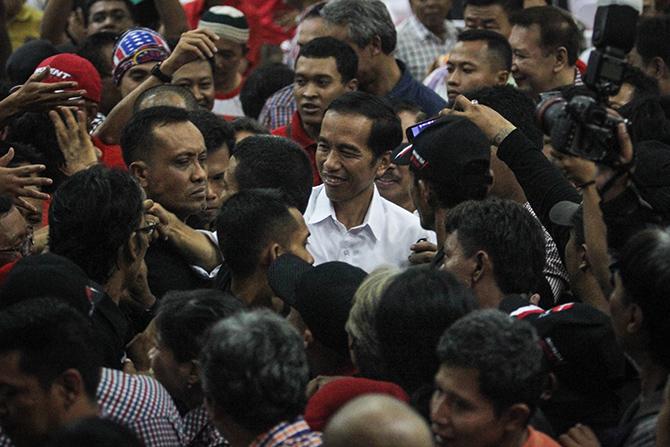
On the second prerequisite, Joko has already proposed a metric that many best-practices countries are already using: the World Bank’s “Doing Business” index. This trusted, independent, annual and public index offers “league tables” of the performance of 189 countries (Indonesia is currently 109, the third-lowest in Southeast Asia), combined with in-depth country reports on the underlying drivers of the rankings, and what can be done to improve them. The index provides comparable, quantitative metrics on a wide range of measures of regulatory complexity and transparency, including ease of starting a business, property rights and access to credit, to deliver short-term progress toward Joko’s long-term impian.
While the World Bank report does not specifically include corruption, collusion and nepotism, there are many other respected annual indices, such as Transparency International’s Corruption Perception Index, where Indonesia ranks 88the out of 168 countries and territories. And the World Bank’s analysis suggests a high, inverse correlation between a country’s ranking and measures of corruption.
As a strategy consultant with more than 40 years of experience working with governments throughout the region on complex, state enterprise and national transformation programs, I believe there are many useful lessons for President Joko and his team. That said, having worked on public and private sector strategy programs in Indonesia since 1972, I also recognize the uniquely complex internal and external challenges facing the president. Internally, Indonesia’s size, complexity and diversity, combined with weak institutions, a “work-in-progress” decentralization policy and a “combative” democracy, will stretch even the president’s skills as an orator and a conciliator. Further magnifying the challenge, President Joko took office at a time when the external environment is materially more difficult for Indonesia than for many of his predecessors. To succeed, the president will need good luck, good judgment – and good advisers.
My objective in this essay is not to pretend to have all the answers but, in the spirit of Spanish-American humanist and philosopher George Santayana, to seek relevant lessons for Indonesia from past efforts of other countries. Not just from the many published sources, but from hands-on experience.
The essence of my message is deceptively simple: sustainable economic growth requires policies and institutions that best align national aspirations and targets with external realities. The implication? Indonesia must be clear about its own aspirations (which is why Vision 2085 is important). It must have a capacity to analyze not just past but future drivers of growth; to increase chances of success, it must be able to not just adopt but adapt to lessons from other nations.







 resized.png)
